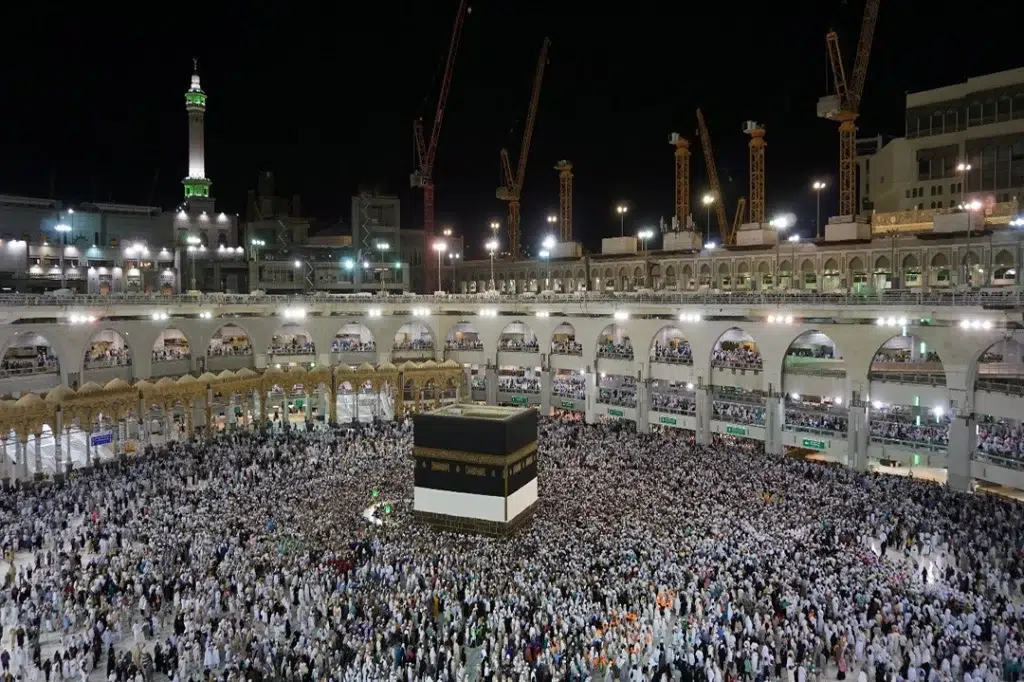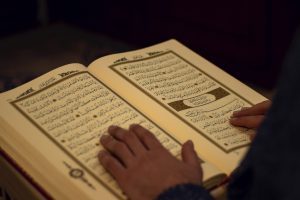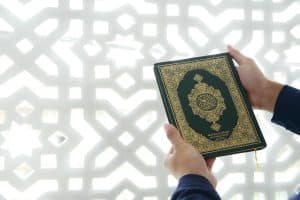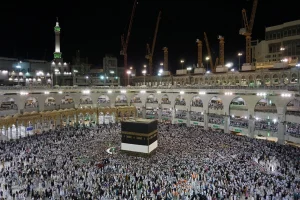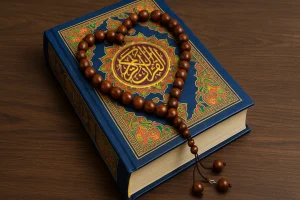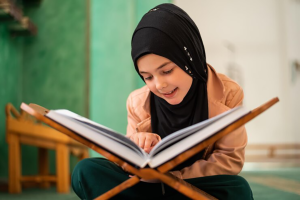He who commands you to improve your soul is the best whom you obey.
Ali ibn Abi Talib (as)
Table of Contents
ToggleThe Significance of Hajj in the Glorious Quran
Obedience to Allah
Hajj, the pilgrimage to Mecca, holds great significance in Islam as one of the five pillars of the faith. It is a ritual that every able-bodied Muslim must perform at least once in their lifetime if they have the means to do so.
The Hajj is a powerful demonstration of obedience to Allah and the submission of the believer’s will to His divine commandment.
In the Sacred Quran, the importance of obedience to Allah is emphasized repeatedly.
Quran teaches that followers of Islam must submit themselves fully to the will of Allah and follow His guidance without question.
Obedience to Allah is seen as the ultimate act of faith and devotion, and those who are obedient to Allah are promised rewards both in this life and in the Hereafter.
The significance of Hajj in the Holy Quran lies in its role as a physical manifestation of obedience to allah. By undertaking the arduous journey to Mecca, performing the rituals of Hajj, and following the prescribed steps of the pilgrimage, Muslims demonstrate their willingness to obey Allah’s commandments and submit themselves fully to His will.
This act of submission is seen as a symbol of true faith and devotion to Allah.
The Noble Quran also emphasizes the importance of unity and brotherhood among Muslims, and the Hajj serves as a powerful example of this.
Millions of Muslims from all over the world gather in Mecca to perform the pilgrimage, regardless of their race, nationality, or social status. The Hajj unites believers in a common purpose and serves as a reminder of the universal brotherhood of Islam.
Furthermore, the Hajj serves as a reminder of the transient nature of this life and the importance of preparing for the Hereafter. By performing the rituals of Hajj, Muslims are reminded of their ultimate goal of attaining paradise and pleasing Allah. The physical and spiritual challenges of the pilgrimage serve to strengthen their faith and commitment to Allah.
Spiritual Cleansing
In the Tafsir of the Sacred Quran, the significance of Hajj as a form of spiritual cleansing is emphasized. Quran mentions Hajj in several verses, highlighting its importance in the life of a Muslim. One such verse is found in Surah Al-Imran, where Allah says, “And proclaim to the people the Hajj; they will come to you on foot and on every lean camel; they will come from every distant pass.” (3:97)
This verse emphasizes the universal nature of Hajj, as Muslims from all over the world come together to perform this sacred ritual. It is a journey that transcends borders, cultures, and languages, bringing people together in a shared act of worship.
The physical act of traveling to Mecca is symbolic of the spiritual journey that every Muslim must undertake to cleanse their soul and draw closer to Allah.
During Hajj, pilgrims perform a series of rituals that symbolize their submission to Allah and their commitment to living a life of piety and righteousness.
From wearing simple white garments to circling the Kaaba and throwing stones at the Devil, each ritual carries its own significance and serves as a reminder of the importance of faith and devotion.
The act of performing Hajj is believed to cleanse the soul of sin and purify the heart of impurities. It is a time for reflection, repentance, and renewal, as pilgrims seek forgiveness from Allah and strive to lead a life that is in line with the teachings of Islam.
The physical challenges of the journey, from the heat of the desert to the crowds of people, serve as a test of faith and a reminder of the sacrifices that one must make to truly connect with Allah.
In the Tafsir of the Grand Quran, the significance of Hajj as a form of spiritual cleansing is clear. It is a journey that every Muslim must undertake in their lifetime, as it serves as a reminder of the ultimate goal of faith: to draw closer to Allah and attain spiritual enlightenment.
By performing Hajj, Muslims reaffirm their commitment to their religion and strive to live a life that is pleasing to Allah.
Unity of the Ummah
One of the ways in which the unity of the Ummah is reinforced is through the pilgrimage of Hajj. Hajj is one of the Five Pillars of Islam and is considered a mandatory religious duty for all able-bodied Muslims to perform at least once in their lifetime.
The pilgrimage takes place in the holy city of Mecca in Saudi Arabia and involves a series of rituals and prayers that commemorate the actions of Prophet Ibrahim and his family.
The significance of Hajj in promoting the unity of the Ummah can be seen in a number of ways. Firstly, Muslims from all over the world come together in Mecca to perform the pilgrimage, transcending national and cultural boundaries. This serves as a powerful reminder of the common bond that unites all believers, regardless of their background.
Secondly, the rituals of Hajj emphasize the equality of all Muslims in the eyes of Allah. During the pilgrimage, all participants dress in simple white garments, symbolizing the idea that before Allah, everyone is equal and no one is superior to another based on their wealth or social status. This emphasis on equality helps to foster a sense of unity and solidarity among the pilgrims.
Furthermore, the rituals of Hajj also serve as a reminder of the importance of cooperation and mutual support among Muslims. The act of performing the pilgrimage together requires a high degree of coordination and cooperation, as millions of people gather in a relatively small area to carry out the rituals.
This shared experience creates bonds of friendship and solidarity among the pilgrims, strengthening the unity of the Ummah.
In the Tafseer of the Sacred Quran, the significance of Hajj in promoting the unity of the Ummah is further emphasized. The Noble Quran emphasizes the importance of unity among Muslims, often referring to them as “brothers” and “sisters” who should support and help one another. The rituals of Hajj, with their emphasis on equality, cooperation, and mutual support, serve as a tangible manifestation of this ideal of unity among believers.
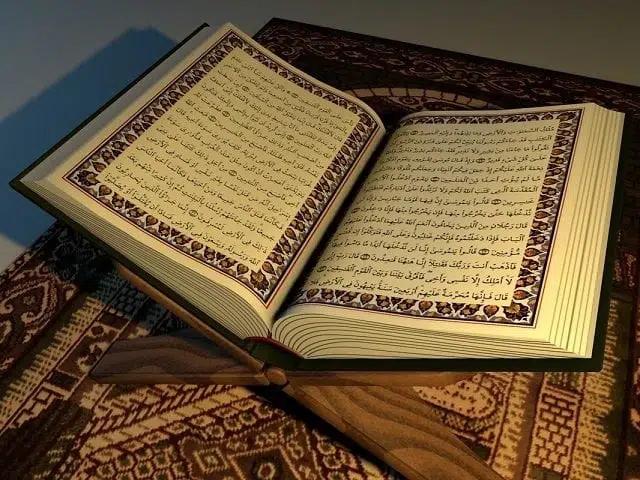
The Rituals of Hajj and Their Meanings
Ihram
One of the most important religious obligations for a Muslim is the pilgrimage to Mecca, known as Hajj.
This annual pilgrimage holds a special significance in Islamic faith, with millions of Muslims from around the world journeying to the holy city to perform the rituals prescribed by Prophet Muhammad.
One of these rituals is wearing the ihram, a traditional garment that symbolizes purity and unity among pilgrims.
The ihram is a simple white garment worn by male pilgrims during the Hajj. It consists of two unsewn sheets of white cloth that are wrapped around the body, with one covering the lower body and the other draped over the shoulders.
Women are also required to dress modestly, often wearing a white hijab and loose-fitting clothing. The simplicity of the ihram serves as a visual reminder of the equality of all pilgrims before Allah, regardless of their wealth or social status.
Wearing the ihram also serves as a physical reminder of the spiritual state that pilgrims must adopt during the Hajj. In this state, known as ihram, pilgrims are required to abstain from certain behaviors and actions, such as cutting their hair, clipping their nails, using perfumes, engaging in sexual relations, and engaging in arguments or fights.
By refraining from these acts, pilgrims are encouraged to focus on their spiritual journey and devotion to Allah.
The white color of the ihram also holds symbolic significance in Islam.
White is often associated with purity, cleanliness, and simplicity, qualities that are emphasized during the Hajj pilgrimage. By wearing white garments, pilgrims are reminded of their commitment to living a pure and righteous life, free from sin and corruption.
The color white also serves as a symbol of unity among Muslims, as all pilgrims wear the same color garment regardless of their nationality or background.
Tawaf
Tawaf is a symbolic act that represents the unity and equality of all Muslims, regardless of their race, nationality, or social status. It is a powerful reminder that in the eyes of Allah, all believers are equal and must come together in worship and devotion.
The act of circling the Kaaba also serves as a physical manifestation of the belief that Allah is at the center of everything and that all Muslims must orient themselves towards Him.
The ritual of Tawaf is a deeply spiritual and emotional experience for pilgrims. As they walk around the Kaaba, they recite prayers and supplications, beseeching Allah for forgiveness and guidance.
Many pilgrims report feeling a profound sense of awe and humility as they perform Tawaf, overwhelmed by the grandeur and significance of the moment.
Tawaf is also a physical manifestation of the unity and solidarity of the Muslim ummah, or community. As millions of pilgrims from all over the world gather in Mecca to perform Hajj, they come together in a display of brotherhood and sisterhood, bound by their shared faith and devotion to Allah.
The act of circling the Kaaba side by side with people from different cultures and backgrounds serves as a powerful reminder of the universal nature of Islam and the importance of unity within the Muslim community.
Sa’i
Sa’i is a reenactment of the actions of Hajar, the wife of the Prophet Ibrahim, who ran between the two hills in search of water for her son Isma’il.
According to Islamic tradition, Hajar and Isma’il were left in the desert by Ibrahim at the command of Allah, and when they ran out of water, Hajar desperately searched for water to quench her son’s thirst. It was during this search that the well of Zamzam miraculously appeared, providing them with the life-saving water.
The act of Sa’i symbolizes Hajar’s dedication, patience, and trust in Allah’s plan. It serves as a reminder to pilgrims that faith and perseverance in the face of adversity are essential virtues in the journey of life.
By walking between Safa and Marwah, pilgrims commemorate Hajar’s struggle and pray for strength and guidance to navigate their own challenges.
Sa’i also emphasizes the importance of mercy and compassion in Islam. The story of Hajar and Isma’il highlights the divine providence that sustains and protects those who place their trust in Allah.
By retracing Hajar’s footsteps, pilgrims are reminded to show kindness and empathy towards others, especially those who are in need or facing hardship.
In addition to its symbolic significance, Sa’i serves as a physical and spiritual exercise for pilgrims. The act of walking between Safa and Marwah requires patience, stamina, and determination, mirroring the perseverance needed to overcome life’s obstacles. Many pilgrims find solace and strength in the repetitive motion of Sa’i, allowing them to reflect on their faith and seek spiritual renewal.
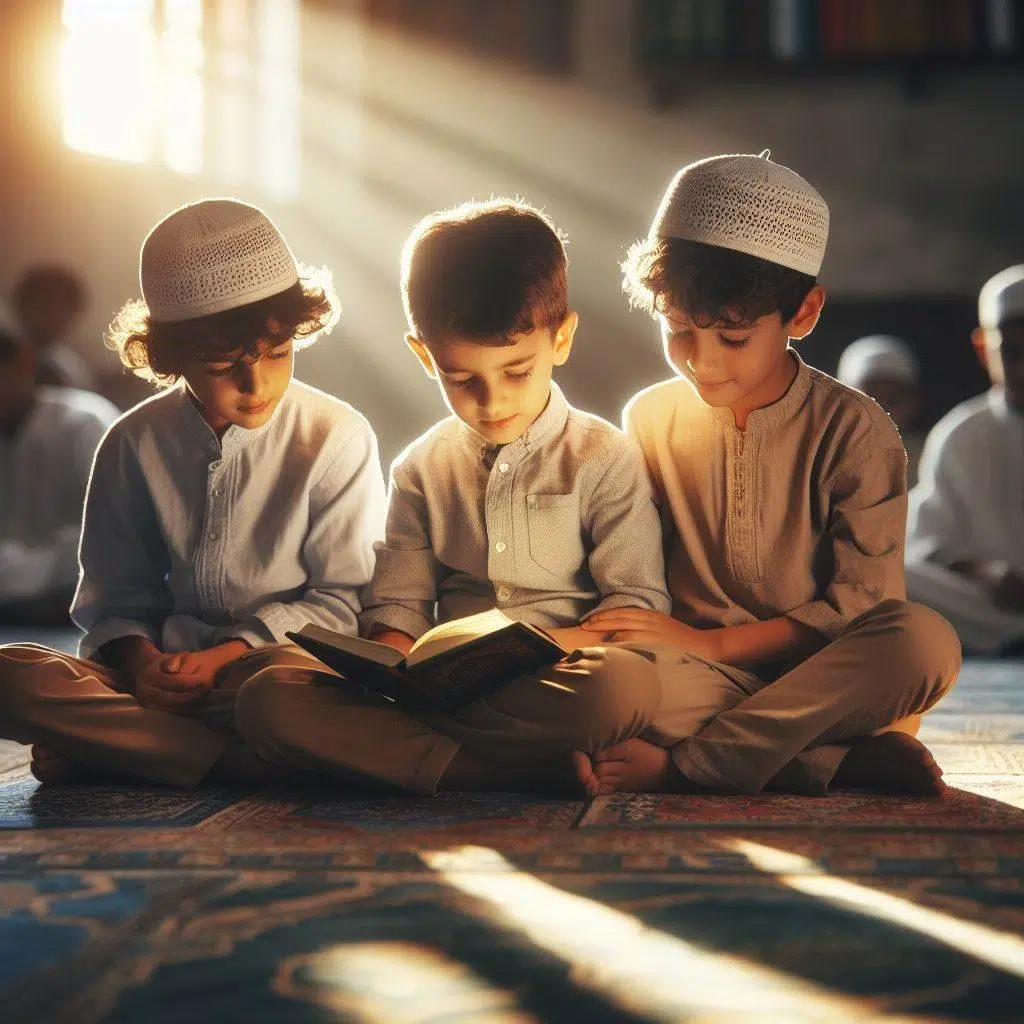
The Lessons of Sacrifice and Patience in Hajj
Sacrifice
One of the most important aspects of Hajj is the act of sacrificing an animal, usually a sheep or goat, as a symbol of obedience and submission to Allah.
This practice is based on the story of Prophet Ibrahim (Abraham) and his son Isma’il (Ishmael), where Ibrahim was willing to sacrifice his son in obedience to Allah’s command. However, at the last moment, Allah provided a ram to be sacrificed instead.
This story serves as a reminder of the importance of obedience and trust in Allah, even when it requires great sacrifice.
The act of sacrificing an animal during Hajj is a physical manifestation of the spiritual journey that pilgrims undertake. It represents the willingness to give up something of value for the sake of Allah and serves as a reminder of the ultimate sacrifice made by Prophet Ibrahim. It is a lesson in humility, gratitude, and reliance on Allah’s provision.
Another lesson of sacrifice in Hajj can be found in the endurance and perseverance required to complete the pilgrimage. Pilgrims often face physical challenges such as fatigue, heat, and discomfort, as well as mental challenges such as navigating crowded spaces and dealing with the emotions that come with such a significant journey.
The ability to overcome these challenges and continue on the path to fulfilling one’s religious duties is a test of faith and commitment to Allah.
The Grand Quran emphasizes the importance of sacrifice in various verses, such as in Surah Al-Baqarah, where Allah says, “It is not their meat nor their blood that reaches Allah; it is your piety that reaches Him.”
This verse highlights the spiritual significance of sacrifice and the intention behind it, which should be to seek Allah’s pleasure and draw closer to Him.
Patience
Hajj, the annual pilgrimage to Mecca, is one of the five pillars of Islam and is a profound spiritual journey undertaken by millions of Muslims from all over the world. It is a time of reflection, devotion, and submission to Allah, as well as a time of unity and brotherhood among believers.
The rituals performed during Hajj are deeply symbolic and offer valuable lessons in patience, perseverance, and faith.
One of the most important lessons that can be learned from the Tafseer of the Holy Quran during Hajj is the virtue of patience.
Patience is a fundamental aspect of the Islamic faith, and the trials and challenges faced during the Hajj pilgrimage serve as a powerful reminder of the importance of this quality.
Throughout the journey, pilgrims face many hardships, from the physical demands of the rituals to the crowded conditions and long hours of waiting. However, it is through patience that they are able to overcome these challenges and find strength in their faith.
The Sacred Quran teaches that patience is a virtue that is rewarded by Allah, and that those who are patient will be granted blessings and mercy.
In Surah Al-Baqarah, verse 153, Allah says, “O you who have believed, seek help through patience and prayer. Indeed, Allah is with the patient.”
This verse reminds us that patience is not only a virtue, but also a source of strength and support in times of difficulty.
During Hajj, pilgrims are required to perform a series of rituals that require patience and perseverance.
From the long walks between the various sites to the hours spent in prayer and contemplation, each aspect of the pilgrimage is an opportunity to exercise patience and strengthen one’s faith.
The Tafsir of the Glorious Quran provides guidance and inspiration for pilgrims, reminding them of the rewards that come from enduring hardships with patience and submitting to the will of Allah.
In addition to the physical challenges of Hajj, pilgrims may also face emotional and spiritual struggles.
The journey can be emotionally and mentally taxing, as pilgrims confront their own weaknesses and shortcomings, seek forgiveness for their sins, and strive to improve themselves as individuals. Through the practice of patience, pilgrims are able to navigate these challenges and emerge from the pilgrimage with a renewed sense of purpose and devotion.
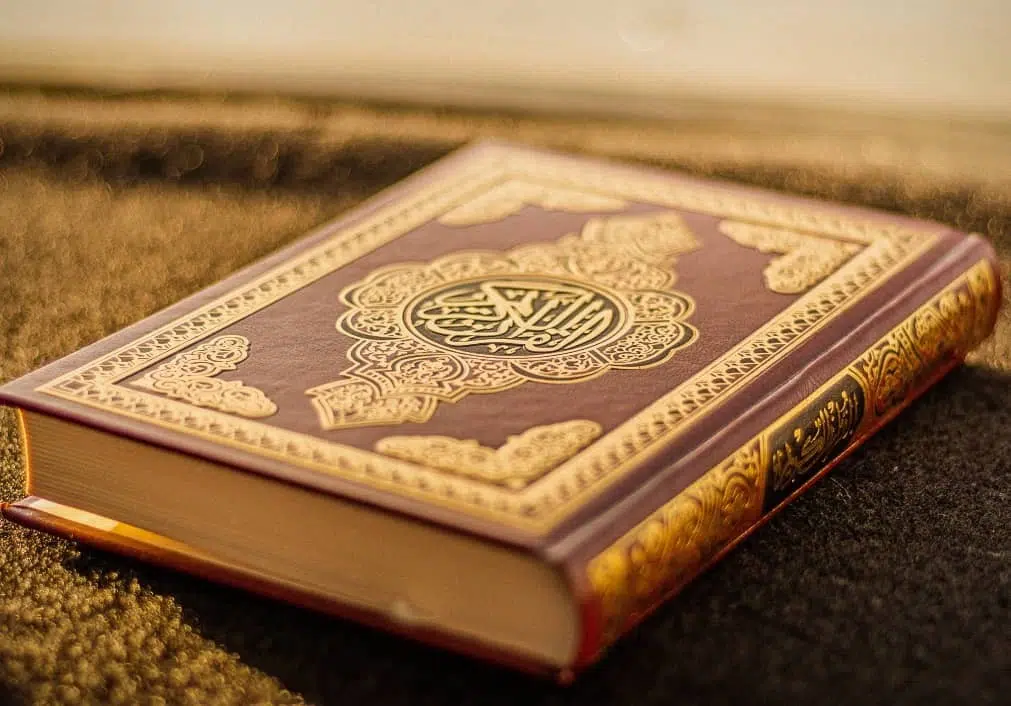
Spiritual Growth
Quran, the holy book of Islam, provides guidance on the rituals and significance of Hajj. Through its Tafsir (interpretation), we can gain a deeper understanding of the spiritual lessons that Hajj teaches us.
One of the key lessons of spiritual growth in Hajj is the concept of surrendering oneself to Allah. The rituals of Hajj, such as circling the Kaaba and throwing stones at the pillars representing Satan, are symbolic of submitting oneself completely to the will of Allah.
This act of surrendering allows pilgrims to let go of their ego, desires, and worldly attachments, and instead focus on their relationship with Allah.
Another important lesson of spiritual growth in Hajj is the theme of unity and equality. During Hajj, regardless of their race, ethnicity, or social status, all pilgrims wear the same simple white garments and perform the same rituals.
This emphasis on equality reminds us that in the eyes of Allah, we are all equal and deserving of his mercy and blessings.
Hajj also teaches us the importance of patience and perseverance. The physical challenges of the pilgrimage, such as walking long distances, enduring the heat, and crowded conditions, test the pilgrims’ patience.
Through overcoming these challenges with patience and gratitude, pilgrims learn to trust in Allah’s plan and rely on his strength to guide them through difficult times.
Furthermore, Hajj is a reminder of the transient nature of life and the importance of preparing for the Hereafter.
The rituals of Hajj, such as standing at the plains of Arafat and seeking forgiveness for sins, serve as a reminder of the Day of Judgment and the need to seek repentance and forgiveness from Allah. This reflection on the afterlife encourages pilgrims to strive for spiritual growth and righteousness in their daily lives.
In conclusion, the Holy Quran provides a profound and multifaceted understanding of the Hajj, highlighting its spiritual, ethical, and social dimensions.
The Hajj is not merely a ritual but a transformative experience that brings the believer closer to Allah, fosters a sense of community and unity, and promotes values of compassion, justice, and moderation.
The Grand Quran’s perspective on the Hajj serves as a guiding light for Muslims, inspiring them to undertake this sacred journey with a deeper understanding and appreciation of its significance.

